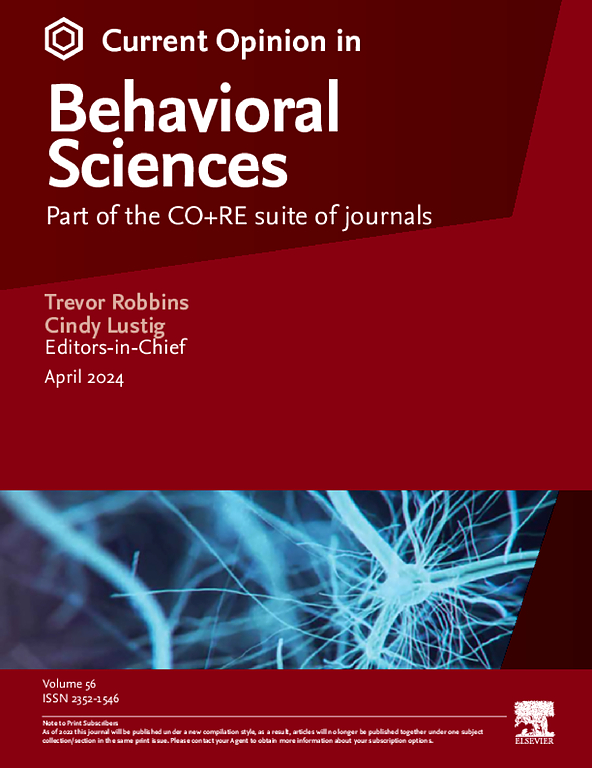The brain that controls itself
IF 3.5
2区 心理学
Q1 BEHAVIORAL SCIENCES
引用次数: 0
Abstract
The brain is a complex adaptive system that is organized across broad spatiotemporal scales. This multiscale architecture poses unique computational challenges, as the brain must balance the segregation of specialized functions with their cooperative integration into broader cognitive processes, while also simultaneously remaining both stable yet flexible enough to robustly rapidly adapt to new challenges. Systems poised near critical points reflect this same trade-off, however they are typically coordinated by external control parameters. Here, we argue that diffuse projections from the subcortex act as intrinsic control parameters that allow the brain to control its own coherence and flexibility. We review biophysical computational models that demonstrate how diffuse projections enforce low-dimensional neural dynamics promoting system-wide coherence while maintaining a susceptibility to external changes. The findings suggest that these systems underlie the brain’s capacity for complex, adaptive behavior, providing a foundation for exploring how diffuse projections influence higher-level cognitive processes and consciousness.
控制自己的大脑
大脑是一个复杂的适应系统,它是跨广泛的时空尺度组织起来的。这种多尺度架构带来了独特的计算挑战,因为大脑必须平衡专业功能的分离与更广泛的认知过程的合作整合,同时保持稳定和足够的灵活性,以快速适应新的挑战。在临界点附近平衡的系统反映了同样的权衡,但是它们通常由外部控制参数协调。在这里,我们认为来自下皮层的漫射投射作为内在控制参数,允许大脑控制其自身的连贯性和灵活性。我们回顾了生物物理计算模型,这些模型展示了漫射投影如何增强低维神经动力学,促进系统范围内的一致性,同时保持对外部变化的易感性。研究结果表明,这些系统是大脑处理复杂适应性行为能力的基础,为探索漫射投射如何影响更高层次的认知过程和意识提供了基础。
本文章由计算机程序翻译,如有差异,请以英文原文为准。
求助全文
约1分钟内获得全文
求助全文
来源期刊

Current Opinion in Behavioral Sciences
Neuroscience-Cognitive Neuroscience
CiteScore
10.90
自引率
2.00%
发文量
135
期刊介绍:
Current Opinion in Behavioral Sciences is a systematic, integrative review journal that provides a unique and educational platform for updates on the expanding volume of information published in the field of behavioral sciences.
 求助内容:
求助内容: 应助结果提醒方式:
应助结果提醒方式:


